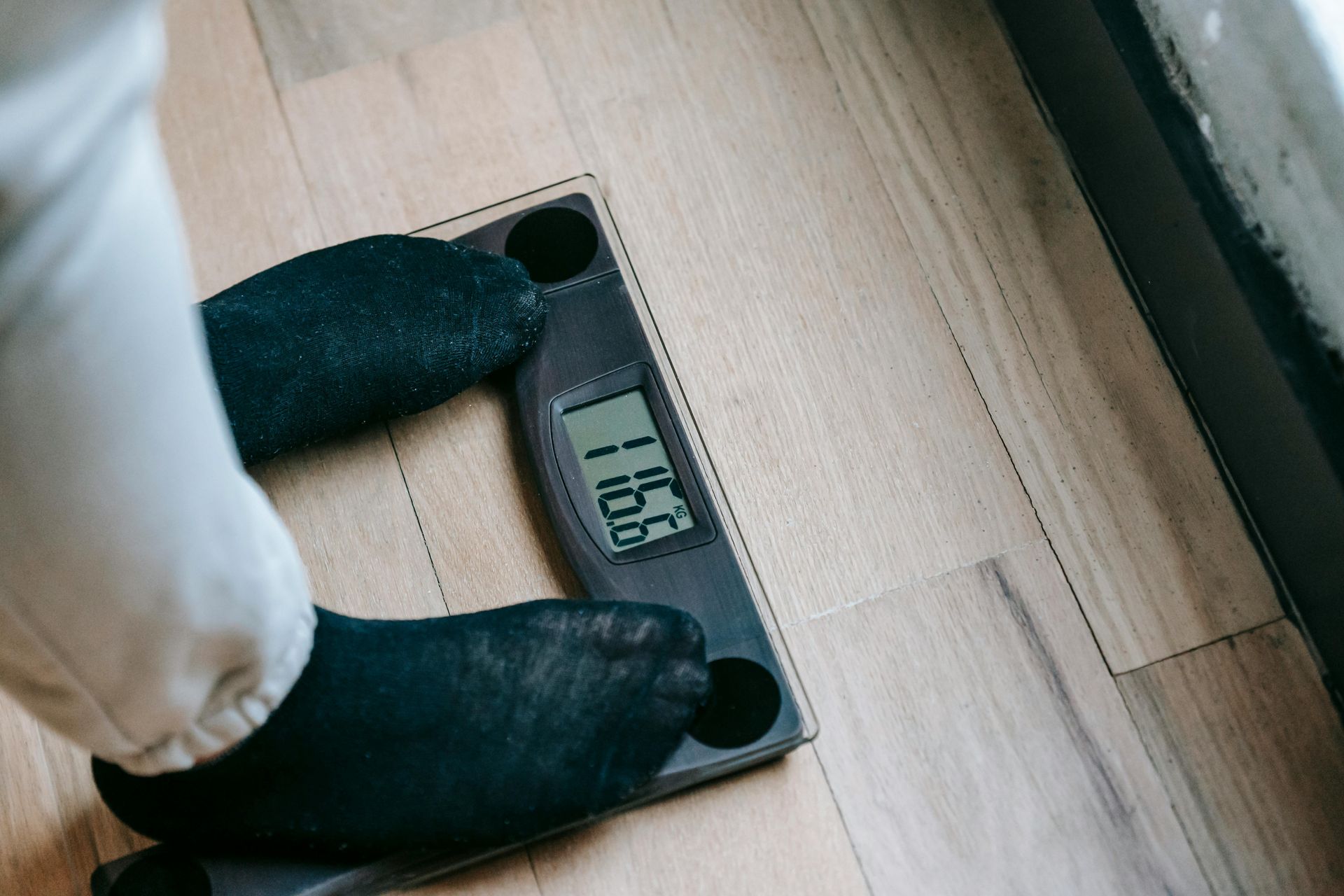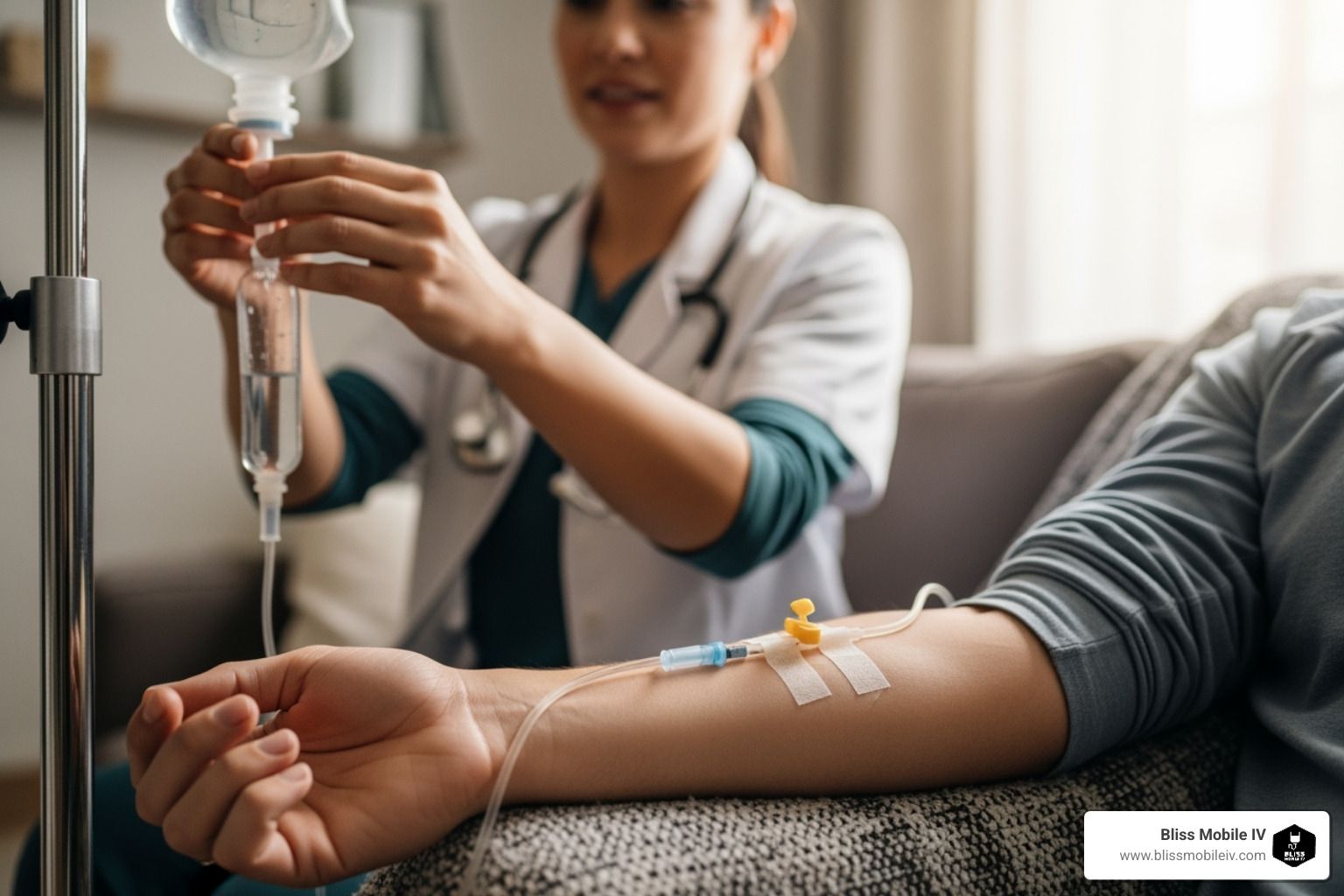Keto Diet Dehydration: Symptoms, Causes and Effective Solutions
Starting a keto diet dehydration journey requires understanding how this low-carb diet impacts your body's hydration levels and electrolyte balance. Many people experience dehydration symptoms during the first few days of ketosis, making proper fluid intake and electrolyte management essential for long-term health and weight loss success.
The transition into nutritional ketosis triggers metabolic changes that significantly affect how your body processes and retains fluids. When you drastically reduce carbohydrate intake, your body begins burning fat for energy instead of sugar, leading to rapid water loss and potential electrolyte imbalances. Understanding these physiological processes helps you maintain optimal hydration while enjoying the health benefits of a ketogenic diet.
What Happens to Your Body During Ketosis?
Ketosis is a metabolic process where your body burns fat for energy instead of carbohydrates, producing ketone bodies that can lead to increased fluid loss and electrolyte depletion.
When you follow a keto diet, your carbohydrate intake drops dramatically, forcing your liver to produce ketones from stored fat. This metabolic shift causes your body to release glycogen stores, which bind to water molecules. For every gram of glycogen your body releases, approximately three grams of water are expelled, explaining the rapid weight loss many people experience during their first week on the diet.
Blood ketone levels rise as your body adapts to using fat as its primary fuel source. Monitoring the level of ketones through blood ketone levels can help you understand where you stand in ketosis. This adaptation period typically lasts several days to a week, during which time many people experience symptoms commonly referred to as the "keto flu." These symptoms—including fatigue, headaches, and digestive complaints—often stem from dehydration and electrolyte imbalance rather than the diet itself.
Why Dehydration Occurs on a Keto Diet

The low-carb nature of the ketogenic diet fundamentally changes how your kidneys process sodium. When insulin levels drop due to reduced carbohydrate consumption, your kidneys excrete more sodium and water. This increased fluid loss through urine creates a higher risk of dehydration compared to standard diets.
Electrolytes like sodium, potassium, and magnesium play crucial roles in maintaining proper hydration. As your body flushes out stored glycogen and water, these essential minerals are also depleted. Without adequate electrolyte replacement, you may experience symptoms beyond simple thirst, including muscle cramps, fatigue, and ketosis headaches.
The metabolic process of breaking down fat requires significant water intake to process and eliminate waste products effectively. Your liver and kidneys work overtime during ketosis, making adequate fluid consumption critical for supporting these organs and preventing long-term health complications.
Common Symptoms of Keto Diet Dehydration
Recognizing dehydration symptoms early allows you to take corrective action before they impact your health and energy levels. Many people following a ketogenic diet experience increased thirst as their body signals its need for more fluids. This heightened thirst often accompanies other telltale signs of inadequate hydration.
Fatigue represents one of the most common complaints during the initial days of a keto diet. When your body lacks sufficient fluids and electrolytes, cellular function becomes compromised, leading to decreased alertness and energy. This exhaustion can make daily activities feel overwhelming and may cause some people to abandon their dietary goals prematurely.
Constipation frequently affects those transitioning to ketosis, as the combination of reduced carbohydrate intake and inadequate water consumption slows digestive processes. Your digestive system requires plenty of water to move waste through your intestines effectively. Without sufficient liquid, you may experience stomach upset and uncomfortable bloating. The risk of stomach issues increases when dehydration combines with the dramatic dietary changes of a ketogenic lifestyle.
Bad breath, often described as fruity or acetone-like, occurs when your body produces ketones. While this indicates successful ketosis, it also signals that your body is processing fat and requires adequate hydration to eliminate waste products efficiently. Drinking plenty of water can help minimize bad breath while supporting your body's metabolic needs. Many people find that bad breath diminishes after the first few weeks as their body fully adapts to ketosis, though maintaining hydration remains essential for keeping bad breath at bay throughout the diet.
Other symptoms include headaches, dizziness, muscle cramps, and decreased urine output with darker coloration. These signs indicate that your body desperately needs both fluids and electrolyte replenishment. If you experience multiple symptoms simultaneously, addressing your hydration status should become your immediate priority.
Effective Hydration Strategies for Keto Dieters
Maintaining proper hydration on a ketogenic diet requires more than simply drinking water. You need a comprehensive approach that addresses both fluid intake and electrolyte balance. Most health experts recommend consuming at least eight to ten glasses of water daily, though individual needs vary based on activity levels, climate, and body weight.
Incorporating mobile IV hydration can provide rapid rehydration and electrolyte replenishment when you're experiencing severe symptoms. IV therapy delivers fluids, sodium, potassium, and magnesium directly into your bloodstream, bypassing the digestive system for immediate relief from dehydration-related fatigue and headaches. Options like the Myer's Cocktail offer comprehensive nutrient support that addresses both hydration and potential nutrient deficiencies common in restrictive diets.
Adding electrolyte-rich foods to your diet helps maintain proper mineral balance naturally. Leafy greens like spinach and kale provide magnesium and potassium, while avocados offer healthy fats along with essential electrolytes. Many people find success with coconut water, which contains natural electrolytes without excessive sugar that would interfere with ketosis. Coconut water provides a convenient option when you need quick electrolyte replenishment between meals.
Consider using a water tracking app to monitor your daily fluid consumption. These digital tools send reminders throughout the day and help you visualize whether you're meeting your hydration goals. Some apps even allow you to log different types of beverages, including infused water and herbal teas that contribute to your overall fluid intake. Fluid tracking apps function as a comprehensive platform for managing not just water intake but also your overall wellness during the ketogenic transition.
Timing your water consumption strategically can enhance absorption and prevent stomach complaints. Rather than gulping large amounts at once, sip water consistently throughout the day. Drinking a glass upon waking, before meals, and between eating times helps maintain steady hydration without overwhelming your digestive system.
The Role of Electrolytes in Preventing Dehydration
Electrolytes serve as your body's internal communication system, facilitating nerve signals, muscle contractions, and fluid balance. Sodium helps retain water and maintain blood pressure, while potassium regulates cellular hydration and supports heart function. Magnesium contributes to hundreds of enzymatic reactions and helps prevent muscle cramps.
When following a keto diet, your electrolyte needs increase significantly. The typical recommendation suggests consuming 3,000-5,000 mg of sodium, 1,000 mg of potassium, and 300-400 mg of magnesium daily. These levels exceed standard dietary recommendations because the ketogenic metabolic process causes your body to excrete minerals more rapidly than usual.
Dehydration IV therapy offers a scientifically-backed solution for quickly restoring electrolyte balance when oral supplementation proves insufficient. This treatment bypasses digestive limitations and delivers precise mineral ratios directly to your bloodstream, ensuring optimal absorption and rapid symptom relief.
Many people benefit from an electrolyte supplement specifically formulated for ketogenic diets. These products contain appropriate ratios of sodium, potassium, and magnesium without added sugars that could disrupt ketosis. Look for options that provide at least 1,000 mg of sodium per serving to help counteract the increased excretion caused by low insulin levels.
Natural food sources provide another excellent strategy for maintaining electrolyte balance. Salt your meals liberally with high-quality sea salt or Himalayan pink salt. Include potassium-rich foods like salmon, mushrooms, and pumpkin seeds. Dark chocolate (with high cacao content) offers magnesium along with antioxidants that support overall health.
Managing Keto Flu Symptoms
The keto flu represents a collection of symptoms that many people experience during their first week of ketosis. Despite its name, this condition isn't actually an illness but rather your body's response to metabolic changes and often stems from dehydration and electrolyte depletion. Symptoms typically peak around days three to five and gradually diminish as your body adapts.
Preventing keto flu starts with aggressive hydration before symptoms even appear. Begin increasing your water intake and adding extra salt to your meals several days before starting the diet. This proactive approach helps maintain fluid balance as your body transitions away from carbohydrate metabolism.
If symptoms do develop, IV therapy provides immediate relief by rapidly correcting dehydration and restoring electrolyte levels. Many people report feeling significantly better within 30-60 minutes of receiving IV treatment, allowing them to continue their ketogenic journey without extended discomfort.
Rest plays an equally important role in managing keto flu. Your body requires energy to adapt to burning fat instead of sugar, so prioritize adequate sleep and avoid overexertion during the first week. Improving your sleeping habits during this transition period helps your body allocate energy toward metabolic adaptation rather than compensating for exhaustion. Gentle activities like walking support circulation without depleting your limited energy reserves.
Some people find that gradually reducing carbohydrates over several weeks, rather than making an abrupt change, minimizes keto flu symptoms. This gentler approach gives your body time to adjust to lower glucose availability while maintaining better hydration and electrolyte balance throughout the transition.
Long-Term Hydration and Health Outcomes
Maintaining proper hydration extends beyond the initial ketosis transition and remains critical for long-term health outcomes on a ketogenic diet. Chronic dehydration can impair kidney function, increase risk of kidney stones, and potentially lead to more serious complications. ResearchTrusted Sourcekidney studies have shown that adequate hydration protects renal function during prolonged ketosis. People with epilepsy who use ketogenic diets for seizure management must pay particular attention to hydration status.
Regular monitoring of your urine color provides a simple way to assess hydration levels. Pale yellow indicates adequate fluid intake, while darker shades suggest you need to increase your water consumption. Checking your urine several times per day helps you catch dehydration early before symptoms become problematic. Some individuals may benefit from using a special home testing kit to monitor blood ketone levels and ensure they're maintaining optimal ketosis while staying properly hydrated.
Scientific studies have shown that proper hydration supports weight loss efforts by maintaining metabolic efficiency and reducing appetite. A 2013 meta-analysisTrusted Source found that water consumption before meals can increase feelings of fullness, potentially reducing overall calorie intake. Additionally, adequate hydration helps your body efficiently mobilize and burn stored fat, supporting your weight loss goals. ReportsTrusted Source alsoTrusted Source indicate that people taking GLP-1 meds alongside ketogenic diets must be especially vigilant about hydration due to compounded effects on appetite and fluid balance.
The ketogenic diet's effects on blood sugar levels and insulin sensitivity require careful attention to hydration for optimal results. Dehydration can interfere with these metabolic processes, potentially reducing the diet's effectiveness. Staying well-hydrated helps maintain stable energy levels and supports the hormonal changes that make ketosis effective for weight management.
Consider periodic check-ins with your doctor to monitor your overall health while following a ketogenic diet. Blood tests can reveal electrolyte imbalances or other issues before they cause symptoms. Medical advice becomes particularly important if you take medications or have pre-existing conditions that might be affected by dietary changes.
Foods and Beverages That Support Hydration
Beyond plain water, numerous foods and beverages can help you maintain optimal hydration while following a keto diet. Bone broth provides both fluids and electrolytes, making it an excellent choice for supporting ketosis. The sodium content helps retain water, while collagen and other nutrients support joint health and digestion.
Infused water adds variety to your hydration routine without adding carbohydrates that could interfere with ketosis. Try combinations like cucumber and mint, lemon and basil, or berry and lime. These natural flavorings make drinking adequate fluids more enjoyable without the sugar content found in commercial flavored waters.
Herbal teas offer hydration benefits along with potential health advantages. Green tea provides antioxidants that may support fat burning, while peppermint tea can ease digestive complaints. Avoid adding sugar or honey; instead, use small amounts of stevia if you prefer sweetness.
Low-carb vegetables with high water content contribute to your daily fluid intake while providing essential nutrients. Cucumbers, celery, lettuce, and zucchini all contain over 90% water and fit perfectly within ketogenic macros. These foods also supply fiber that supports digestive health and helps prevent constipation.
Athletic performance IV infusion offers targeted support for active individuals following ketogenic diets. This specialized treatment combines hydration with nutrients that support muscle recovery, making it ideal for people who combine intense exercise with their low-carb lifestyle.
When to Seek Professional Hydration Support
While most dehydration cases can be managed through increased fluid intake and electrolyte supplementation, some situations require professional intervention. Severe symptoms like extreme dizziness, rapid heartbeat, confusion, or inability to keep fluids down indicate serious dehydration that needs immediate medical attention. Persistent stomach upset can also signal the need for professional support.
People experiencing persistent symptoms despite increasing water and electrolyte intake may benefit from professional hydration therapy. IV treatment provides a controlled, medically-supervised solution that addresses dehydration more effectively than oral methods when absorption issues or severe deficits exist. Stomach upset often prevents adequate oral rehydration, making IV therapy the most efficient intervention.
Those with certain medical conditions should exercise extra caution when following a ketogenic diet. Individuals with kidney disease, diabetes, or heart conditions need medical advice before making significant dietary changes. Your doctor can help you develop a hydration strategy that supports both your ketogenic goals and your overall health needs.
Athletes and highly active individuals have increased hydration requirements that may exceed what oral intake alone can provide. Mobile IV services bring professional hydration support directly to your location, making it convenient to receive treatment without disrupting your training schedule or daily routine.
If you're using a keto diet to manage epilepsy or other medical conditions, working closely with healthcare professionals becomes essential. Regular monitoring ensures that your nutritional ketosis remains therapeutic while preventing complications from dehydration or electrolyte imbalances.
Practical Tips for Staying Hydrated on Keto
Success on a ketogenic diet requires developing sustainable hydration habits that fit your lifestyle. Start each day by drinking 16-20 ounces of water with a pinch of salt to replenish fluids lost during sleep. This morning ritual jumpstarts your hydration and helps prevent afternoon fatigue.
Set regular reminders on your phone or use a water tracking app to ensure consistent fluid intake throughout the day. Many people find success with the "water bottle method"—filling a large bottle in the morning and ensuring it's empty by bedtime. This visual approach makes monitoring your progress simple and motivating.
Pay attention to your body's signals and increase water intake during hot weather, illness, or increased physical activity. These situations raise your fluid requirements beyond baseline needs. Additionally, some people require more water due to their body size, age, or individual metabolism.
Keep electrolyte supplements or prepared electrolyte drinks readily available, especially during your first few weeks of ketosis. Having these resources on hand makes it easier to address symptoms quickly before they become severe. Consider carrying single-serve packets in your bag or car for emergencies.
Energy and focus IV treatments can help maintain mental clarity and physical energy when dehydration symptoms interfere with your daily activities. This preventive approach supports your success on the ketogenic diet by ensuring you feel your best throughout the adaptation period.
Following a keto diet successfully requires understanding and addressing dehydration risks. By implementing proper hydration strategies, monitoring your symptoms, and seeking professional support when needed, you can enjoy the weight loss and health benefits of ketosis while maintaining optimal wellness. Remember that adequate water intake, electrolyte balance, and attention to your body's signals form the foundation of a sustainable, healthy ketogenic lifestyle.








